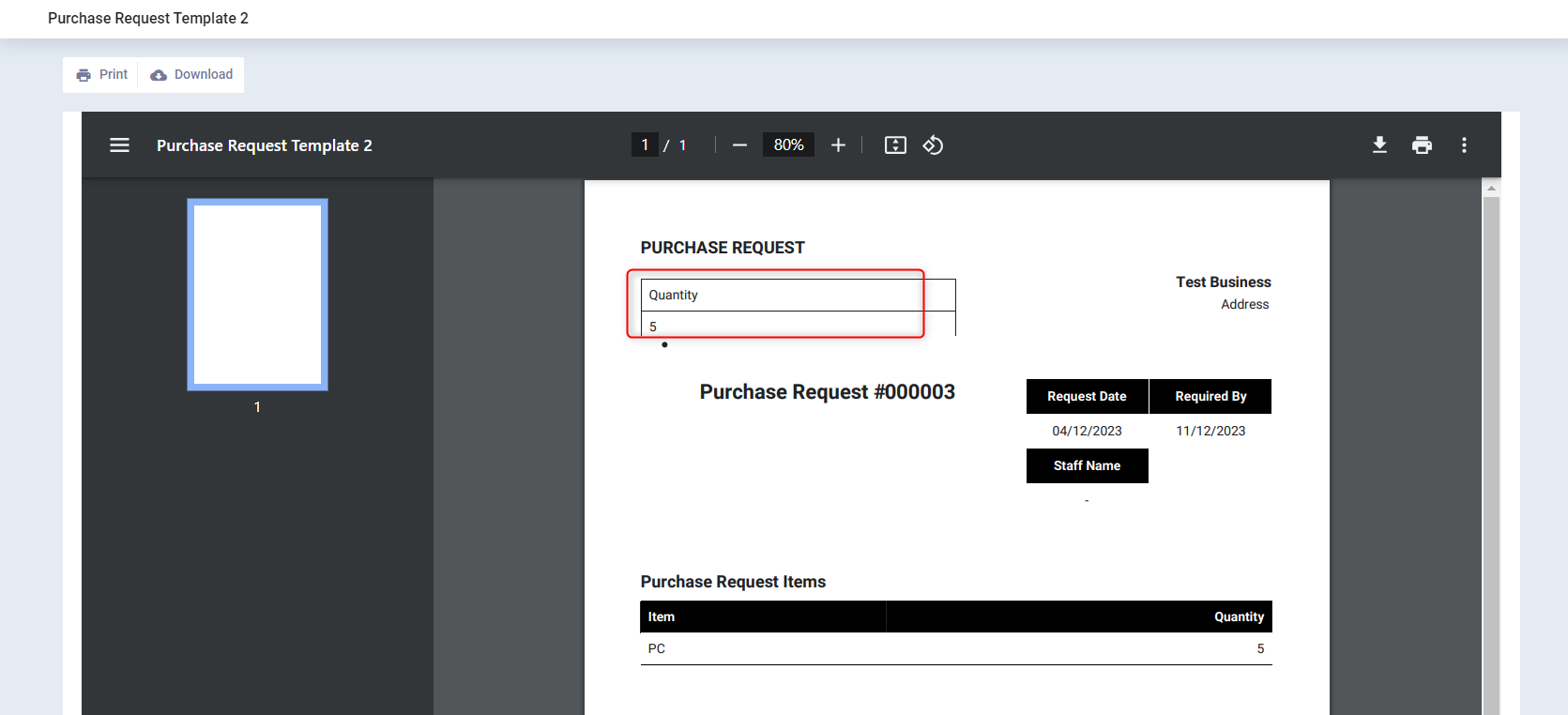The Printable Templates of the Purchase Cycle
The system provides you with several templates for purchasing cycle documents that vary in formatting and included data, and also allows you to modify any of these templates to suit your business needs and express your identity.
How to modify the Printable Templates of the Purchases Cycle
Click on “Purchase Invoice Settings” dropdown under “Purchases” in the main menu then click on “Printable Templates”.
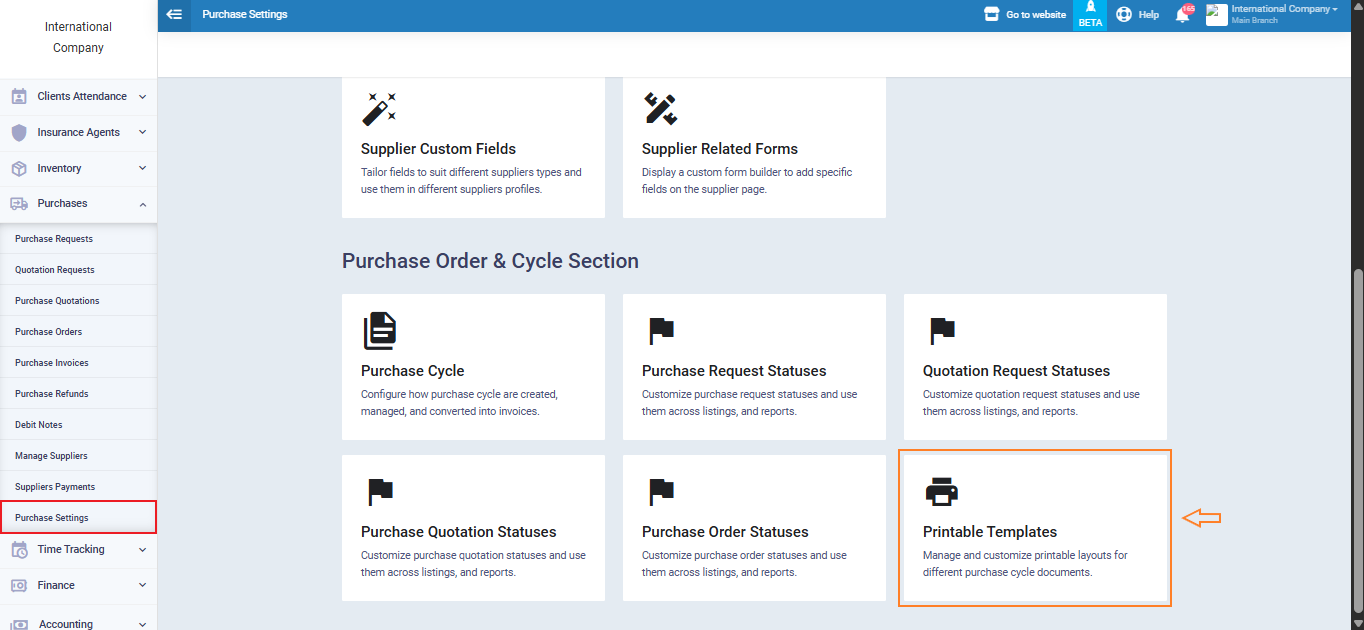
Click on the document type you wish to modify a template for, like “Purchase Requests”.
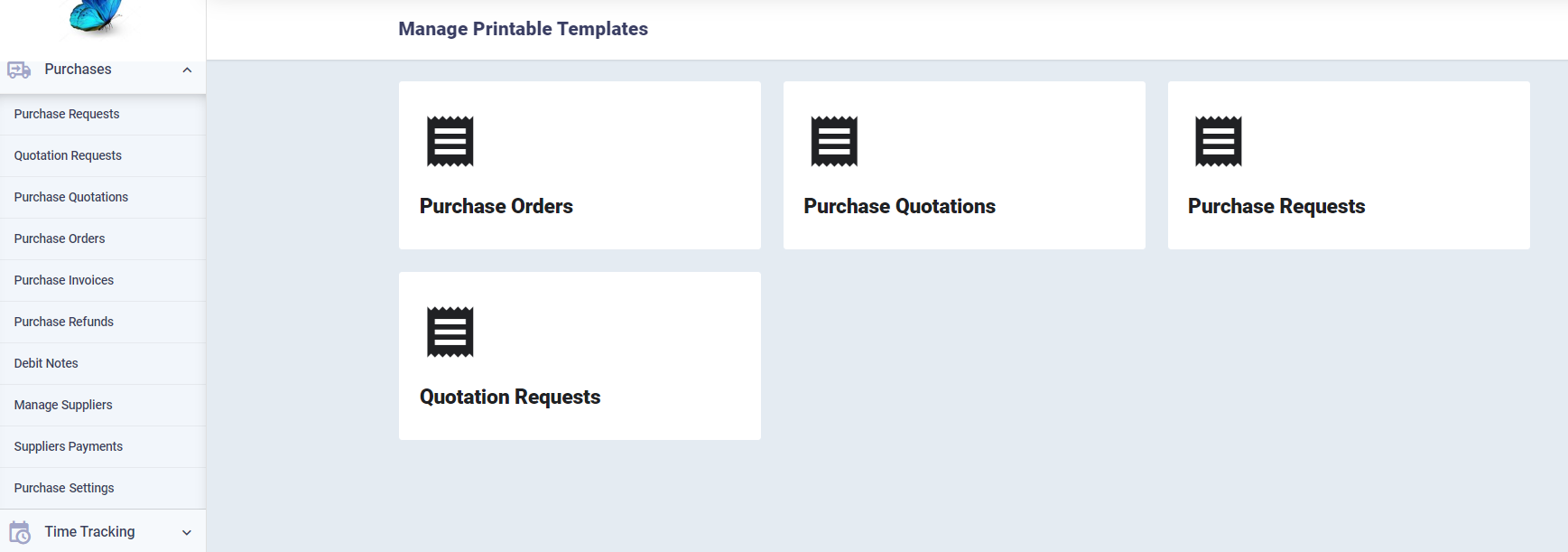
By clicking on the three dots above a printable template, you can create a clone of it or deactivate it, and to edit, click on the template you want to modify.

You can also create a custom template that you control in terms of data and design from scratch by clicking on “Add Template” located under “Custom Templates”.
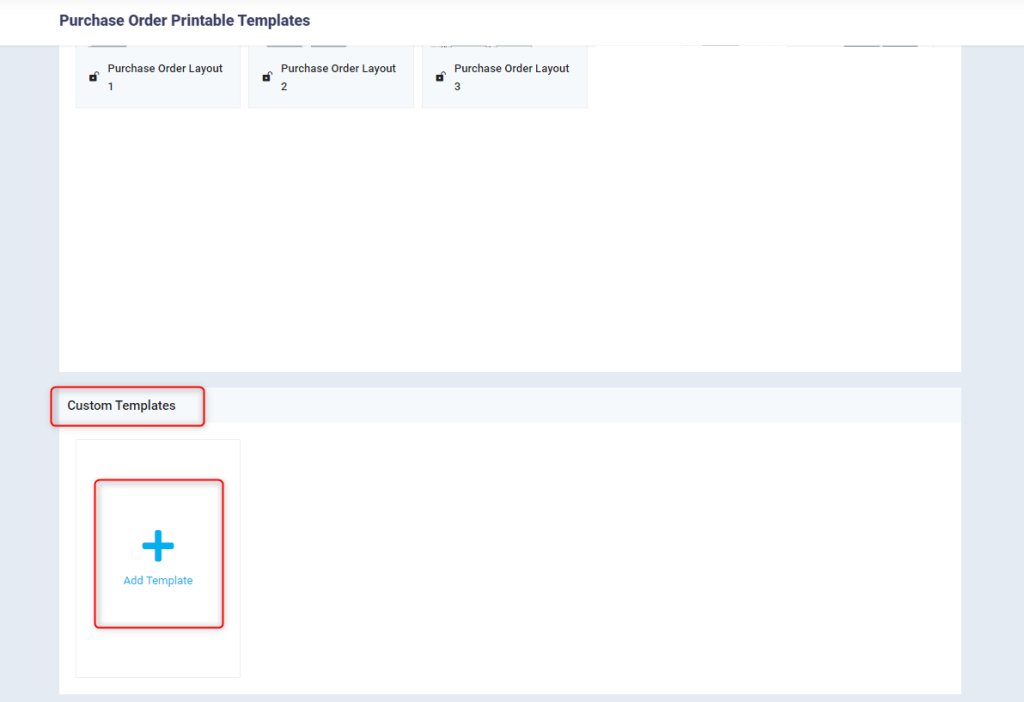
A screen of one of the “Purchase Requests” templates will appear after opening it, where you can use the toolbar, settings, and variables to achieve the desired data and template form. You can preview what you have added or save it.
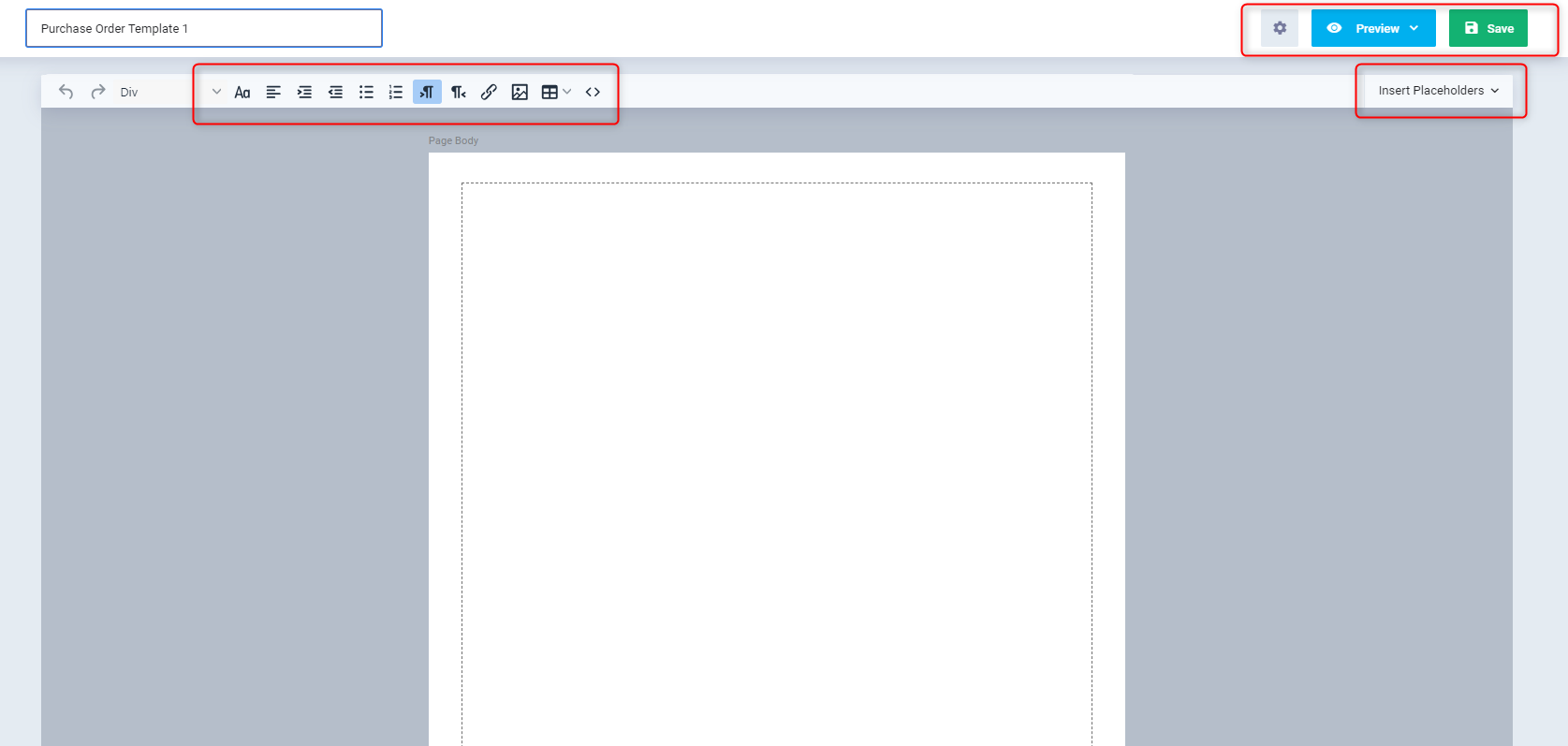
Template Settings:
The settings relate to the page size as well as the header and footer. By clicking on them, you can choose between:
- Page Setting.
- Header.
- Footer.
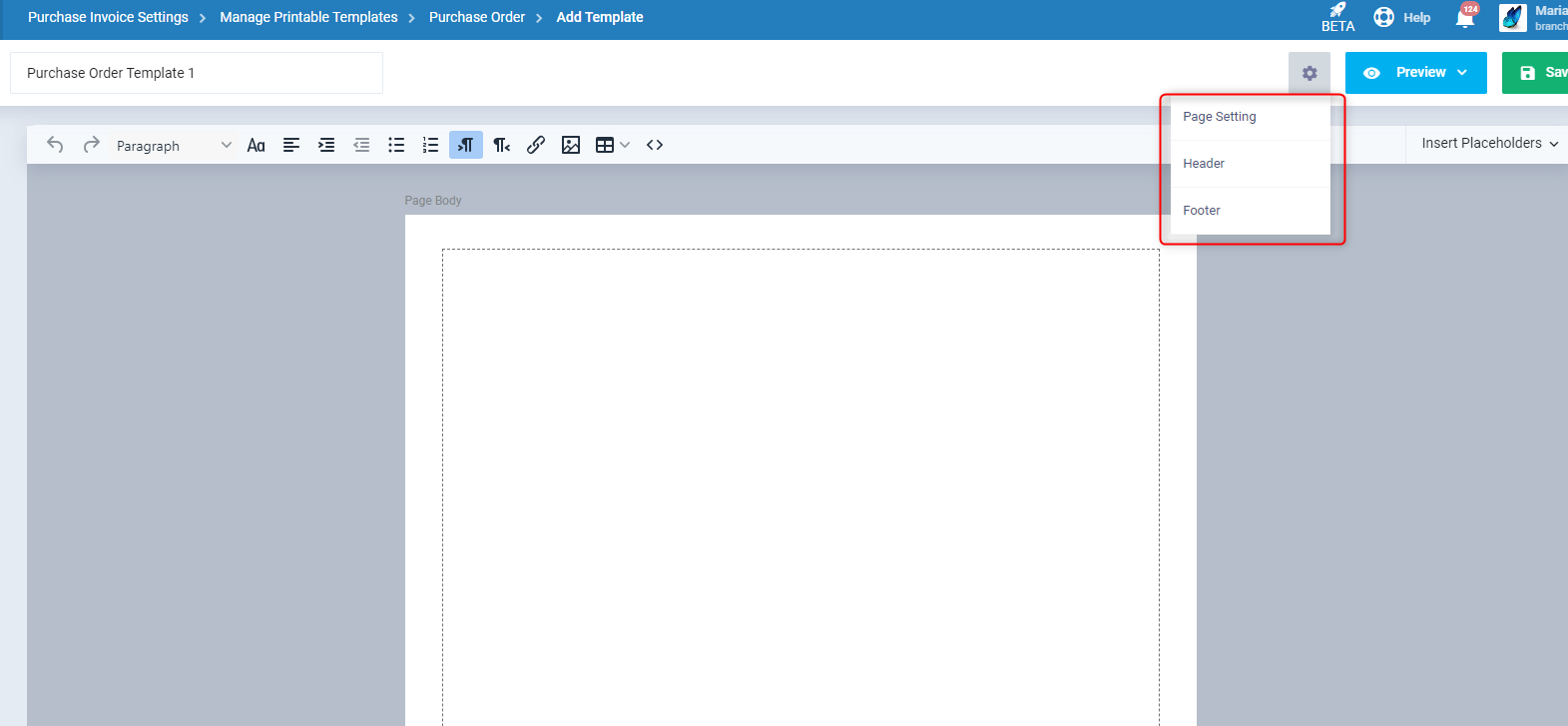
You can show or hide the header and footer, as well as control their height, by clicking on the header or footer and adjusting the settings.
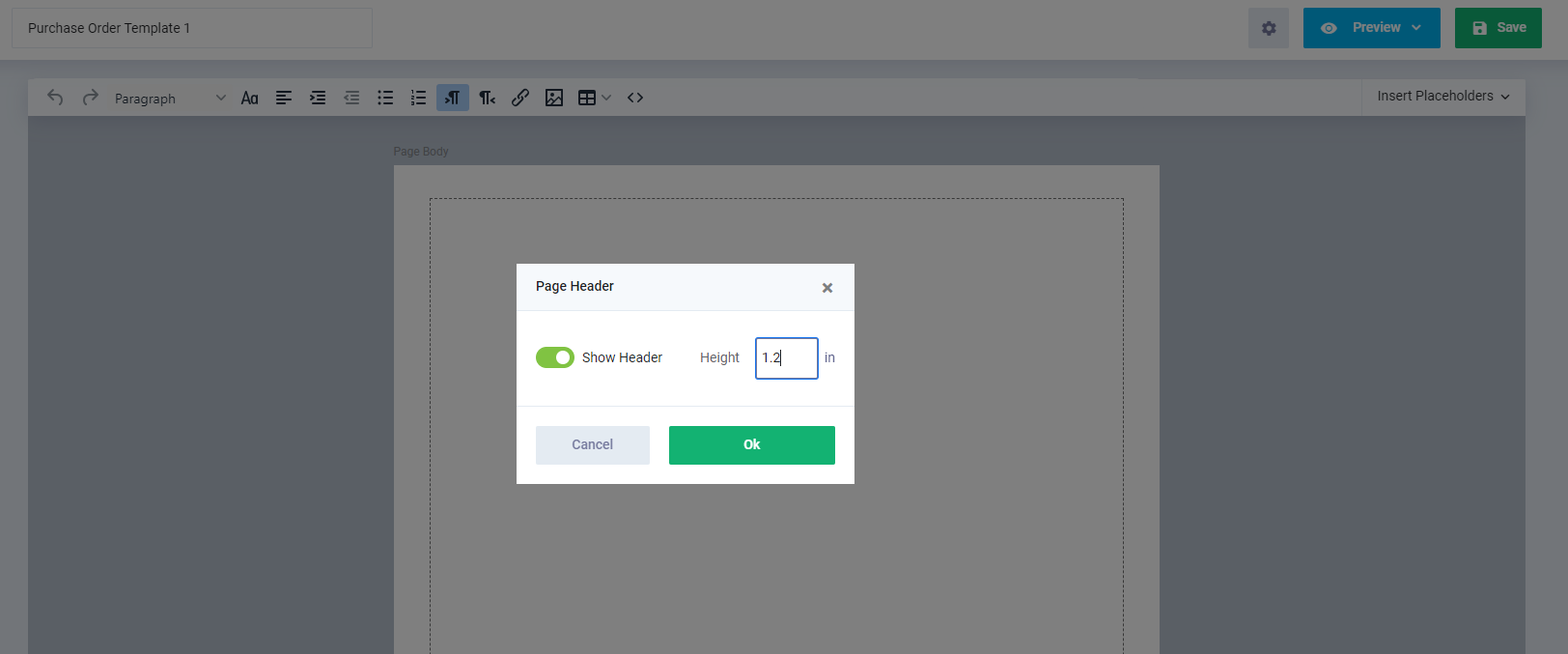
Also, by clicking on Page Settings, you will see several options related to the paper size, orientation, and margins.
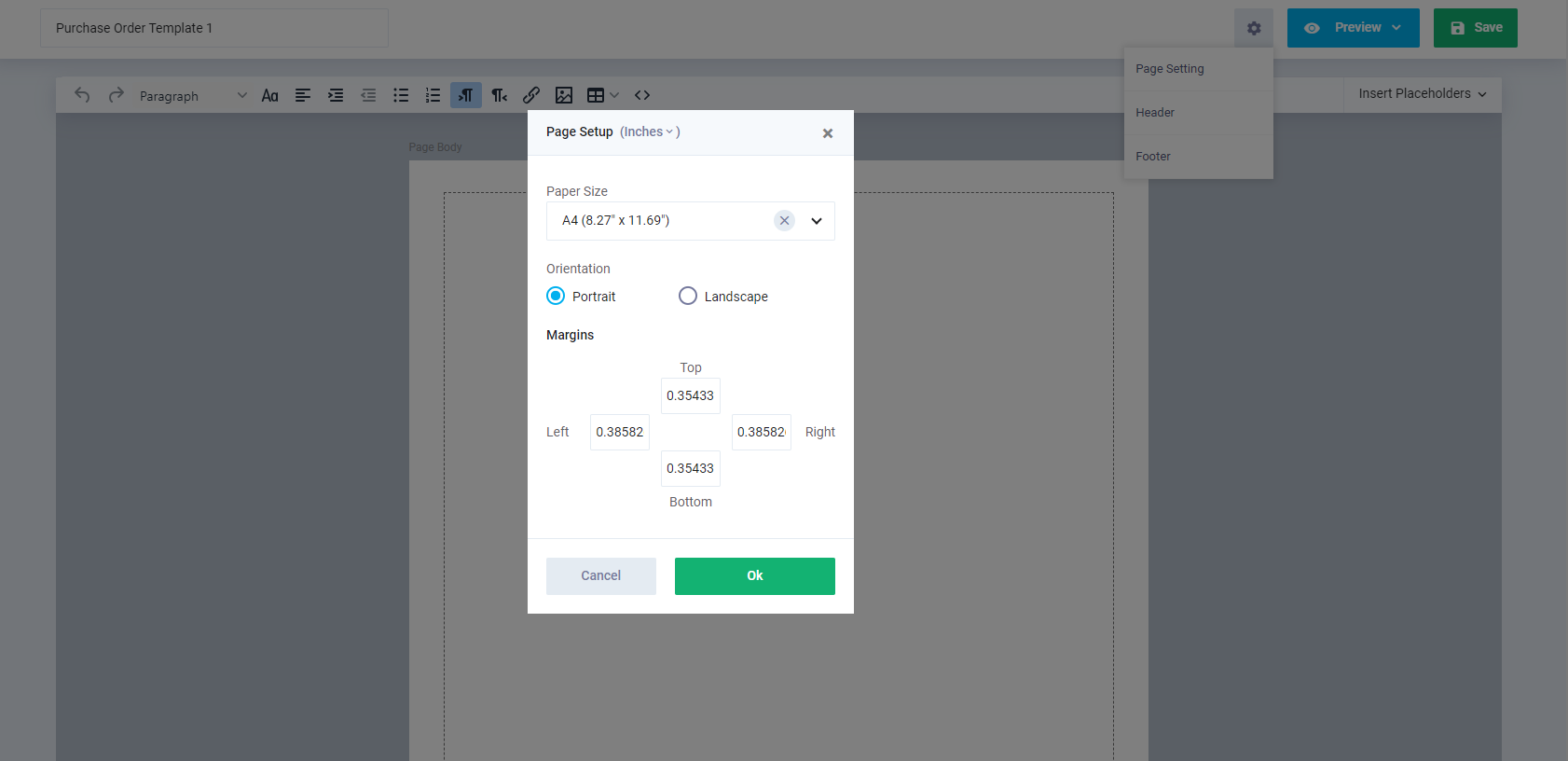
The Variables:
Variables are either new fields or data you want to display in the template.
Variables are divided into two categories:
- System Placeholders, which are further divided into:
-
- Environment Variables.
- Business Variables.
- Branch Variables.
- Current User Variables.
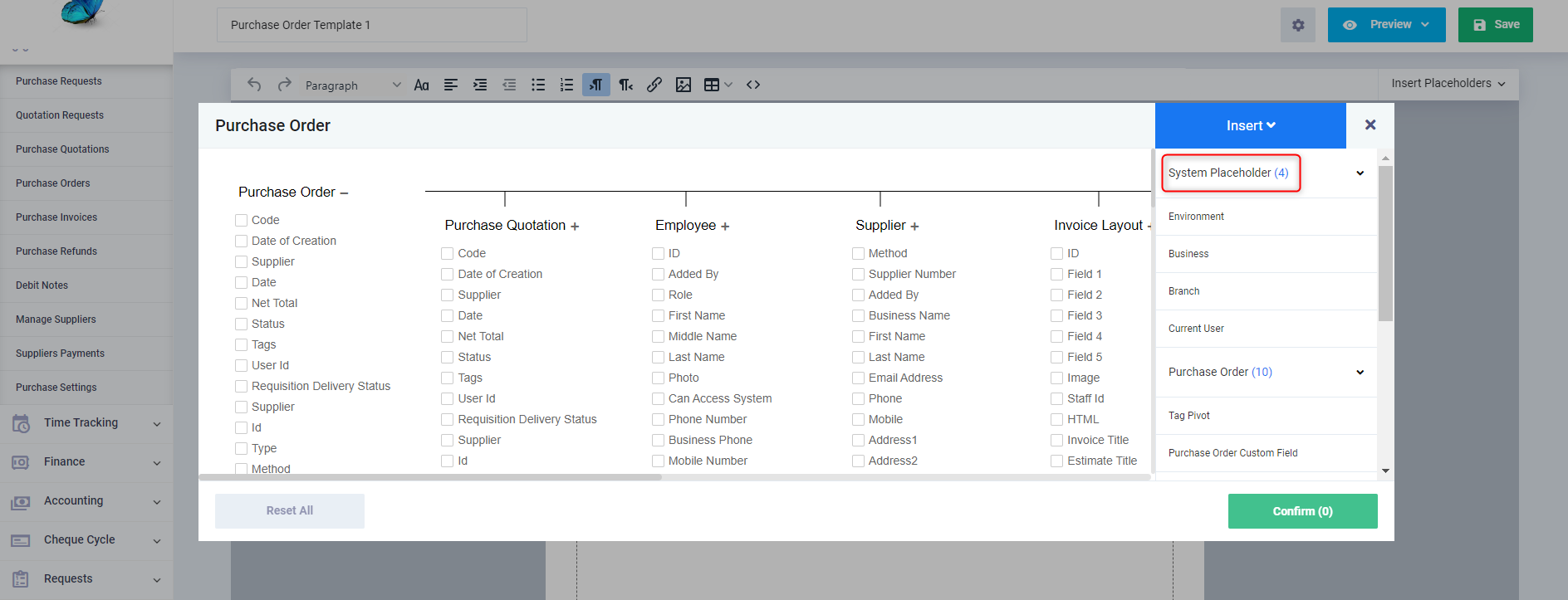
- Variables for the purchasing cycle documents, in this example, “Purchase Orders” variables are shown.
After choosing the type of variable, click on the variable you want to display in the template.
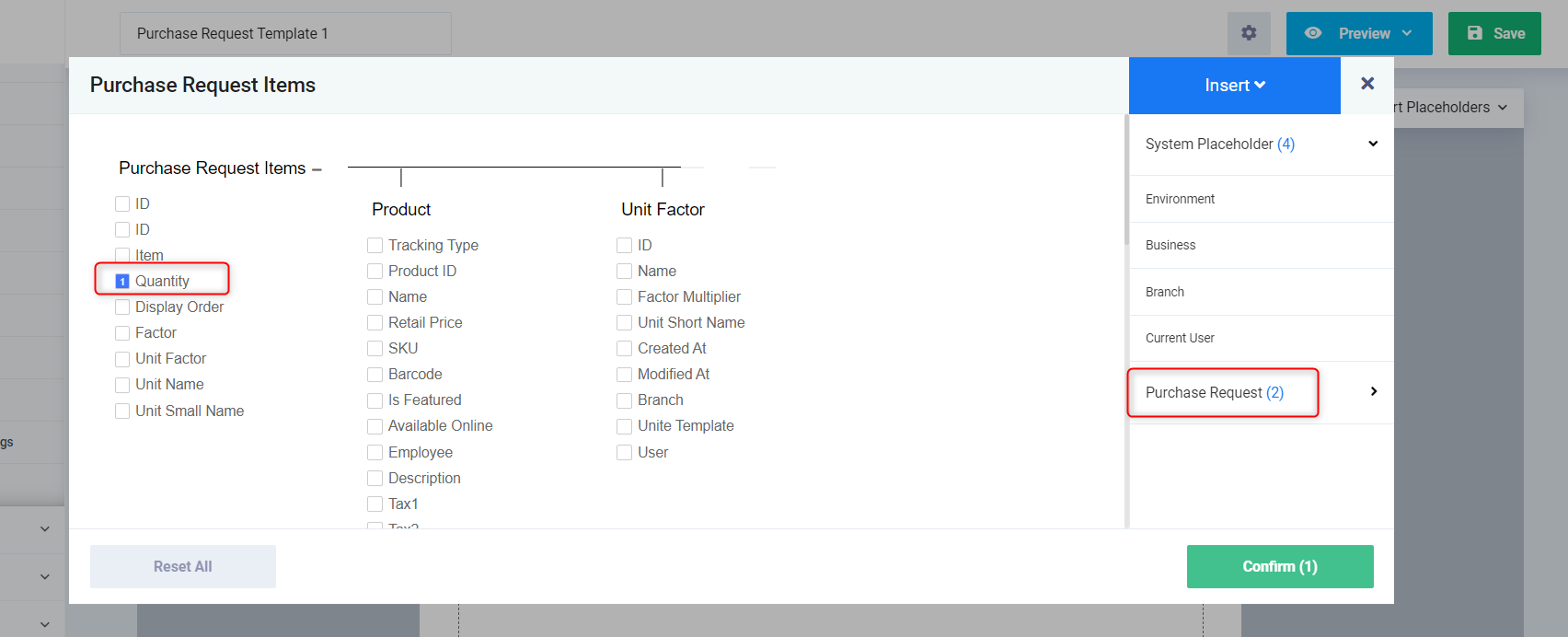
Note that the appearance of the variable in the template can either be limited to the data or the action resulting from the variable, or it can contain the variable’s title followed by the data or action resulting from it, by clicking the Insert button and choosing either Insert for data only or Insert with label for displaying both the title and the variable.
For example, if the variable is the quantity of a purchase order:
- Choosing “Insert” type shows the amount directly as just a number.
- Whereas choosing “Insert with label” shows:
- Quantity: 30
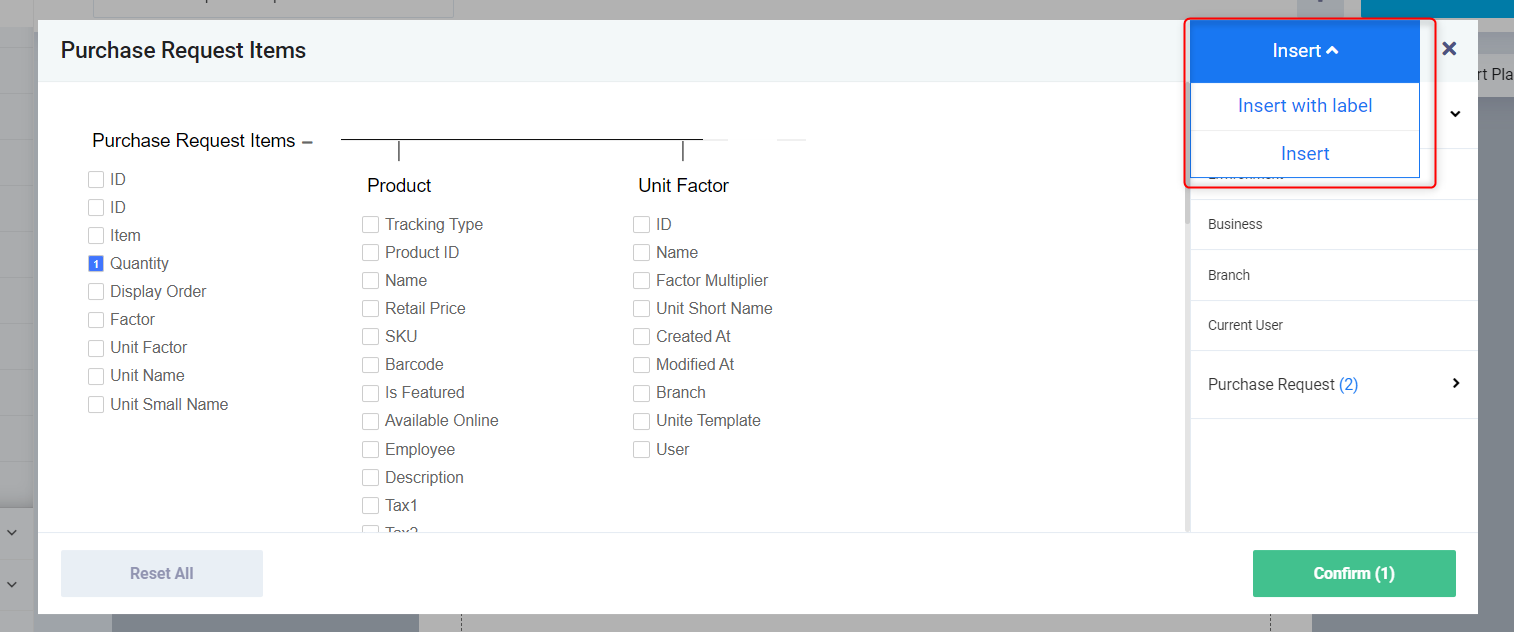
The variable appears after being added to the field, and you can drag it to the appropriate place within the template.
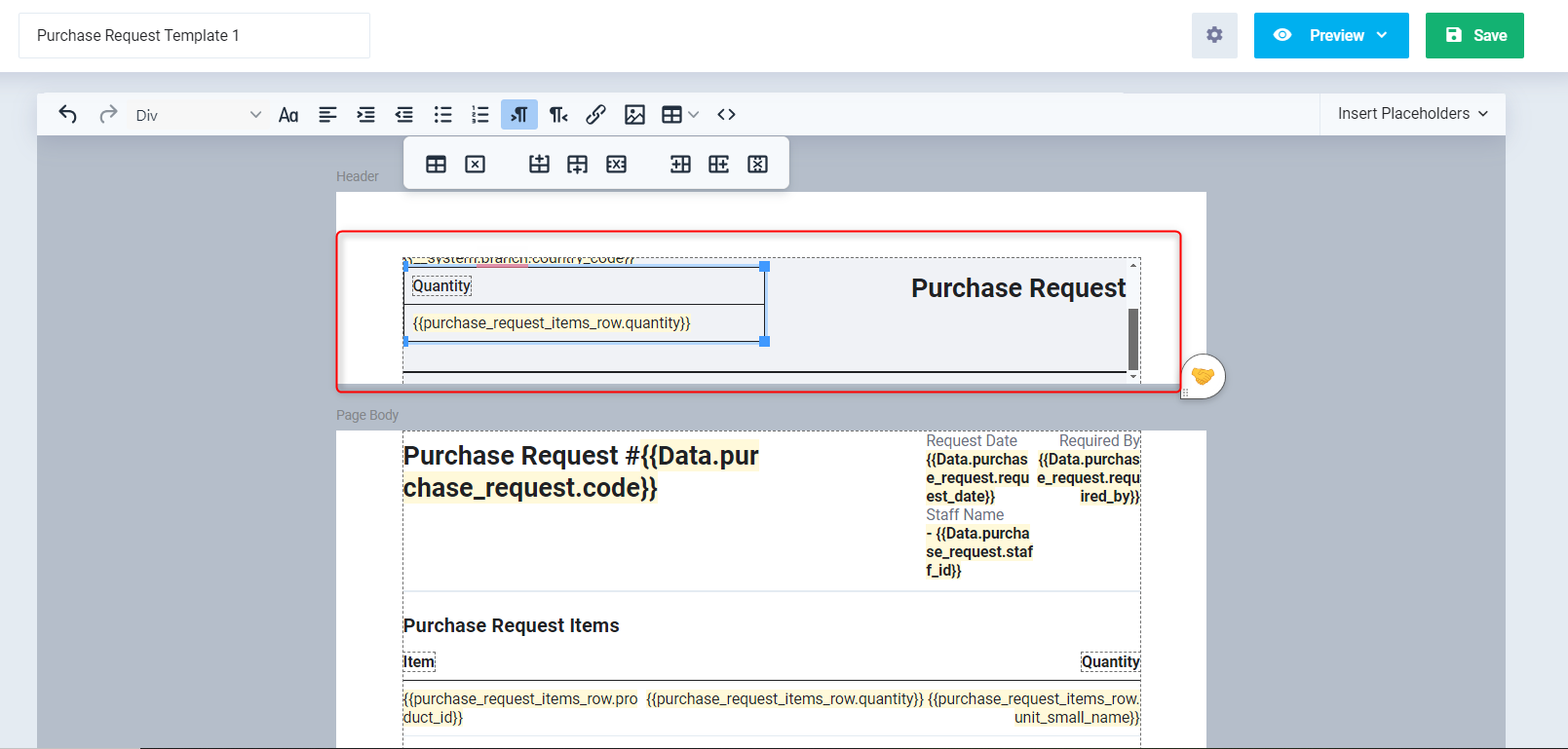
Previewing the Changes:
After adding the variable, click on the “Preview” button, then choose “Preview using Last Modified Record” to see what the template will look like if saved, then if you wish, you can click on the “Save” button.
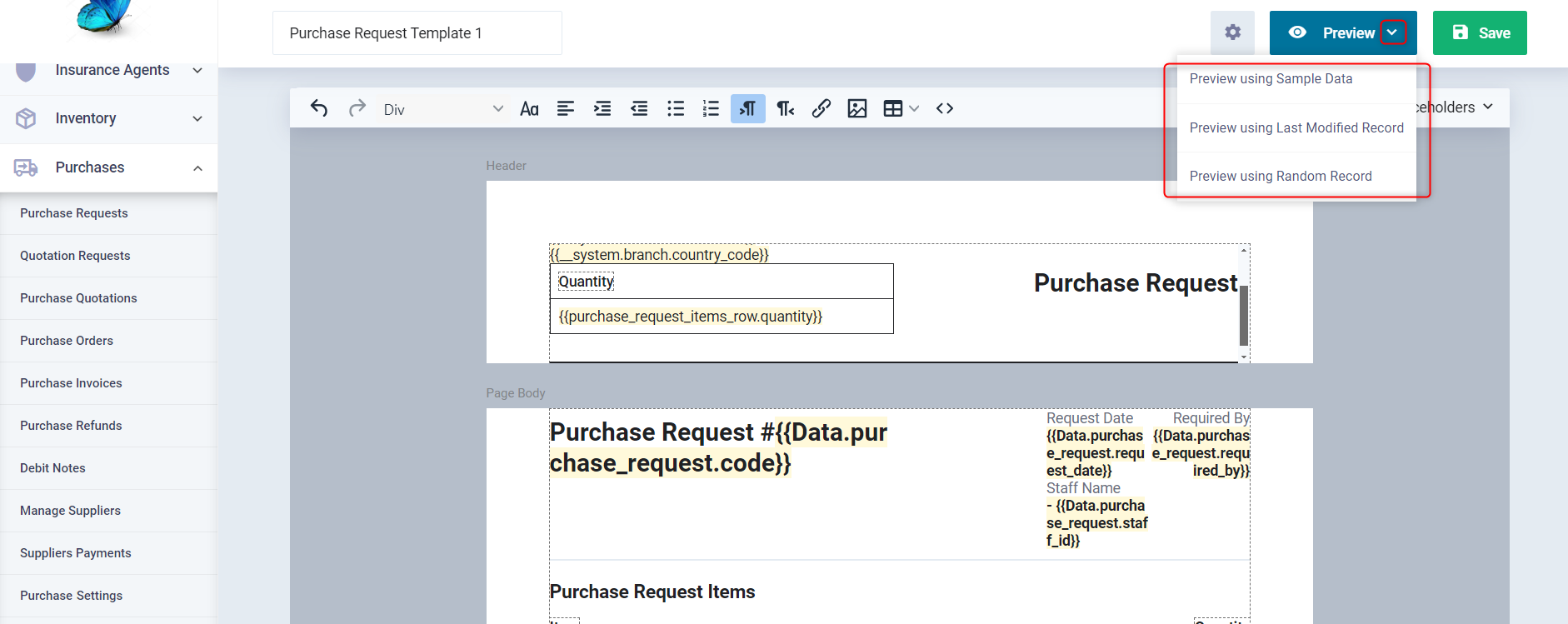
The appearance of the template after saving or previewing it is as follows:
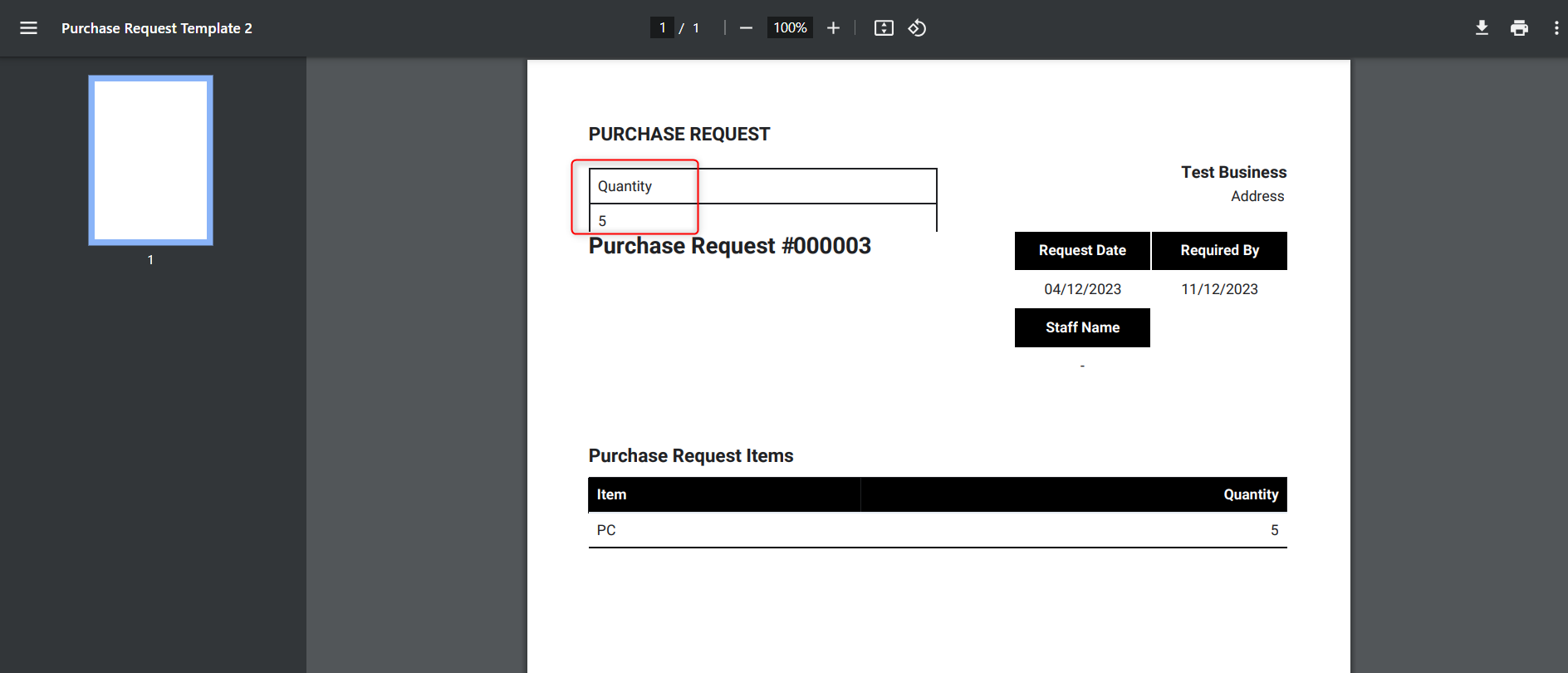
Template Tool Bar:
The toolbar contains multiple tools for adjusting the formatting of variables, including, for example:
- Control over heading levels, page alignment, and paragraph settings.
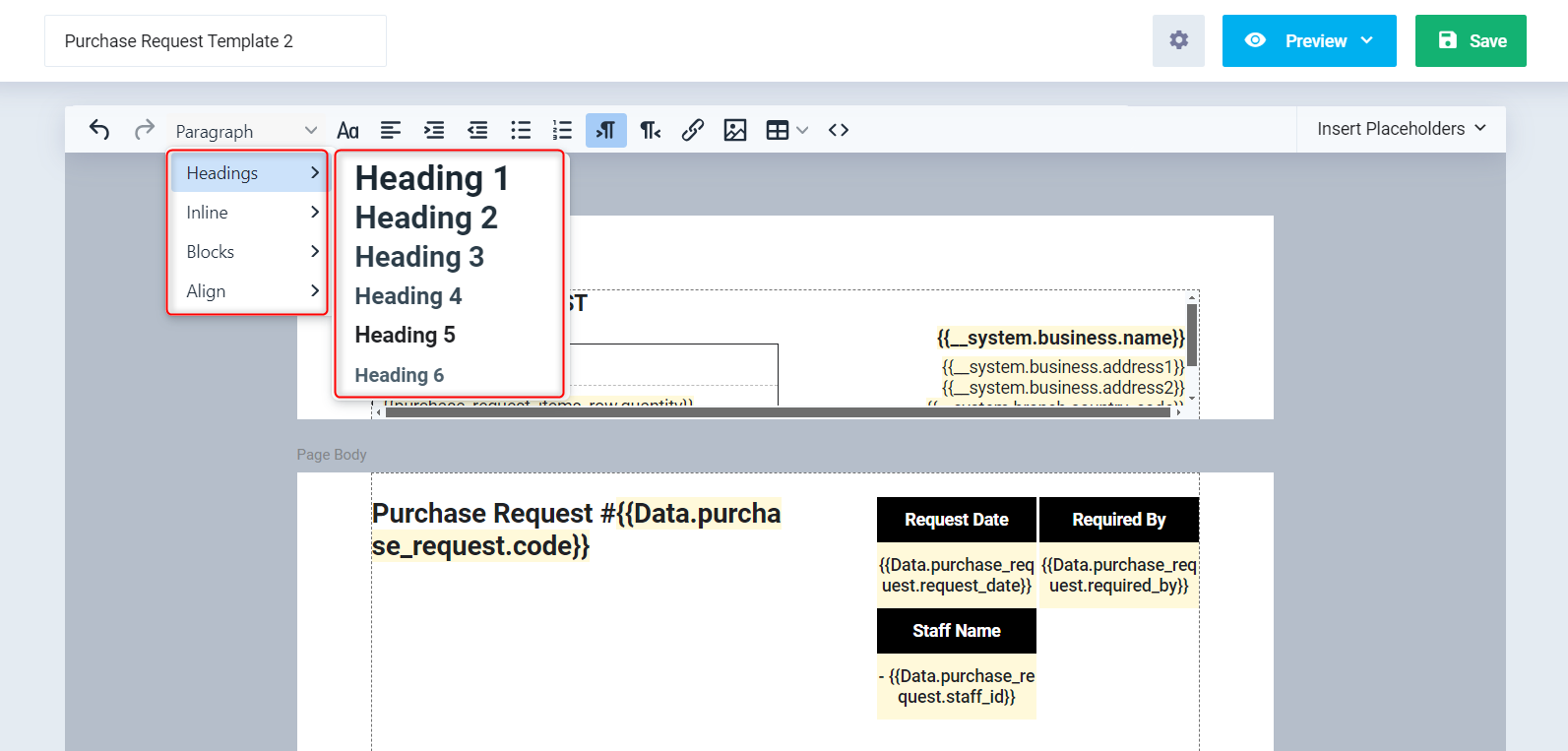
- Control over font type, color, properties, shadow, and size.
- Adding tables, images, links, numbered and bulleted lists, and other formatting options.
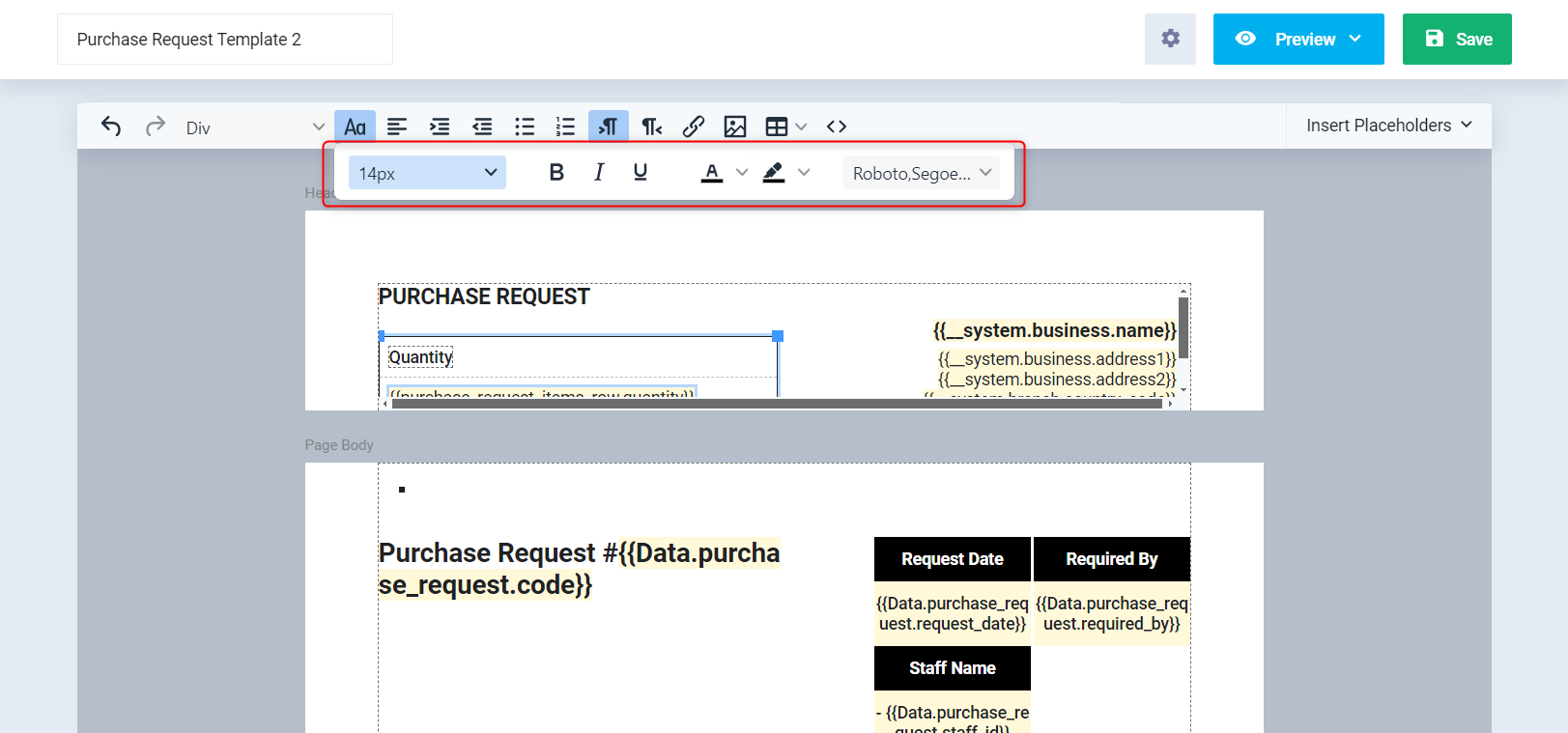
- By clicking on <> Source Code, you can preview the code associated with the template, and of course, if you have the necessary programming knowledge, you can directly modify it and add the desired properties.
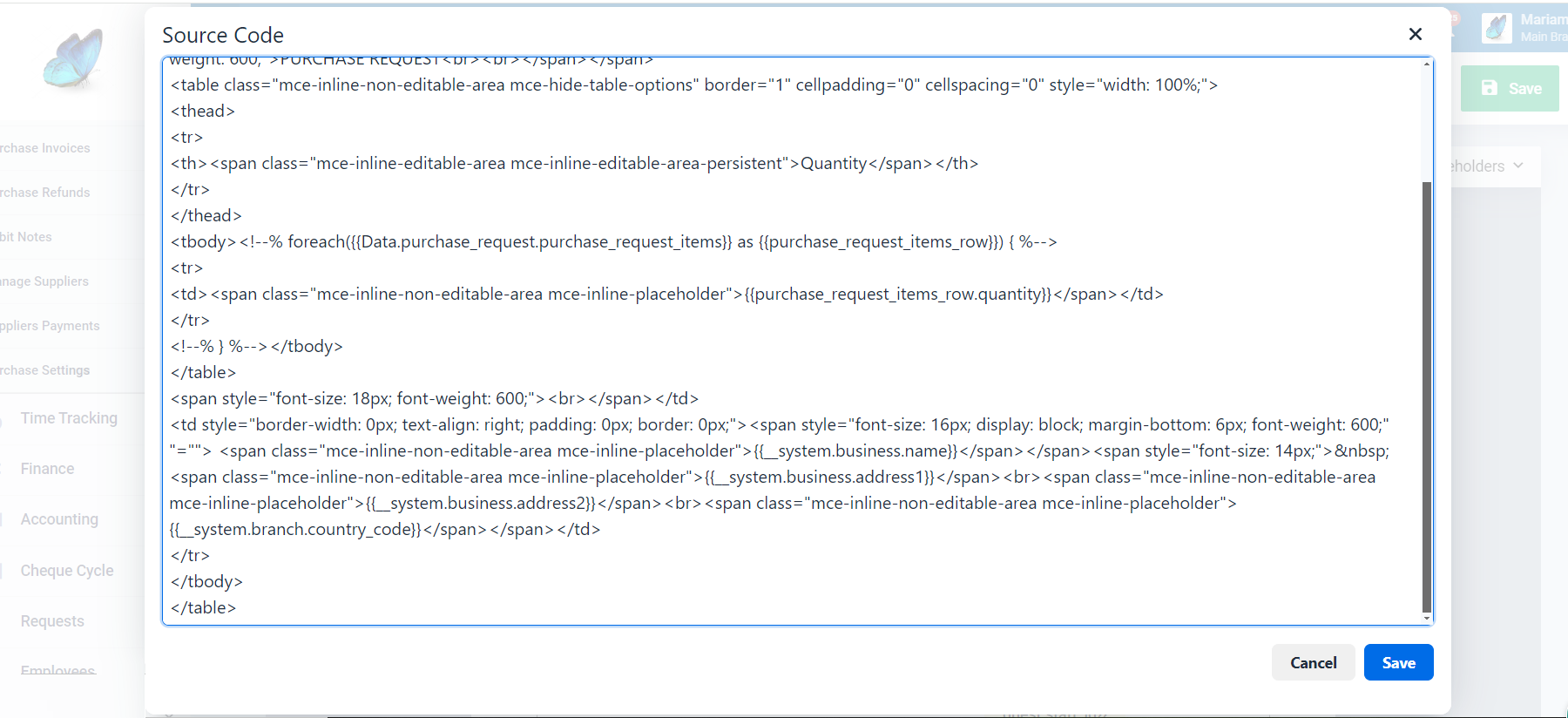
Using the Template after the Modification
After saving the template, go to the purchasing document such as “Purchase Orders” from the “Purchases” dropdown in the main menu according to the type of purchasing document template you edited.
Then select the purchase order you want to apply the template to, and click on “Pintables” then choose the template name.
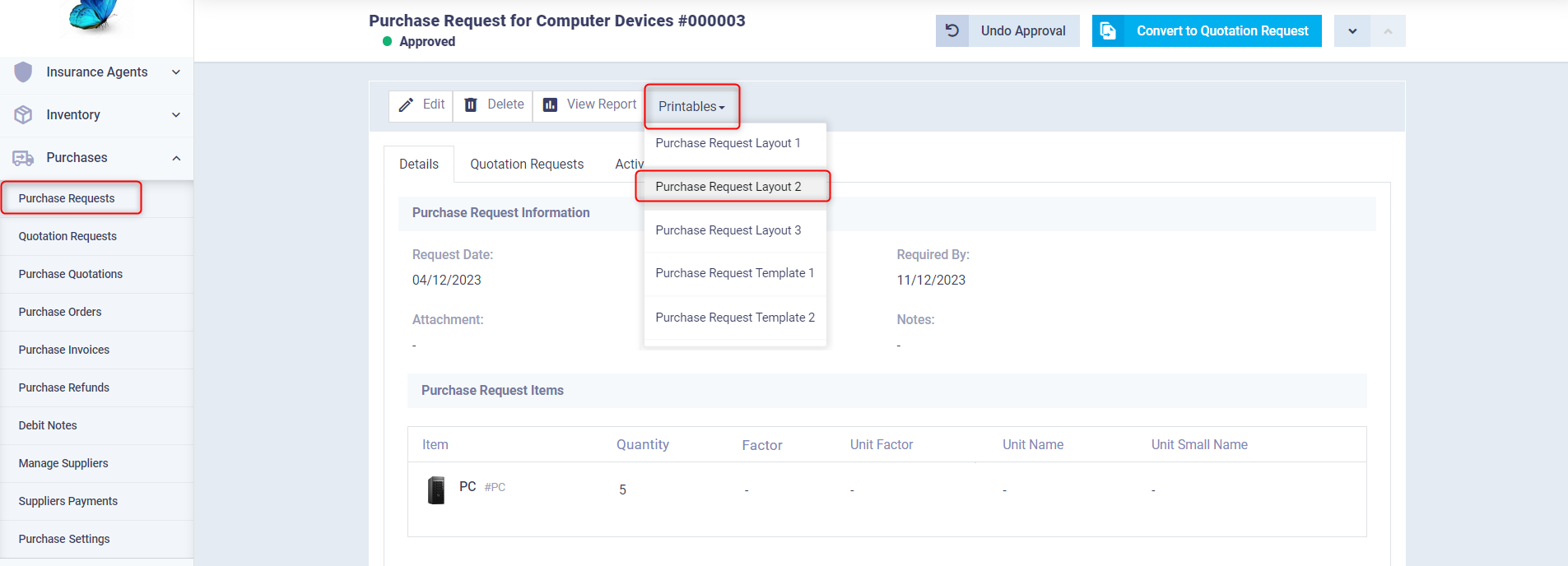
This will display the purchase order (purchasing document) you want in the format of the selected template, including the formats and variables you added to it, and you can print or download the template.
